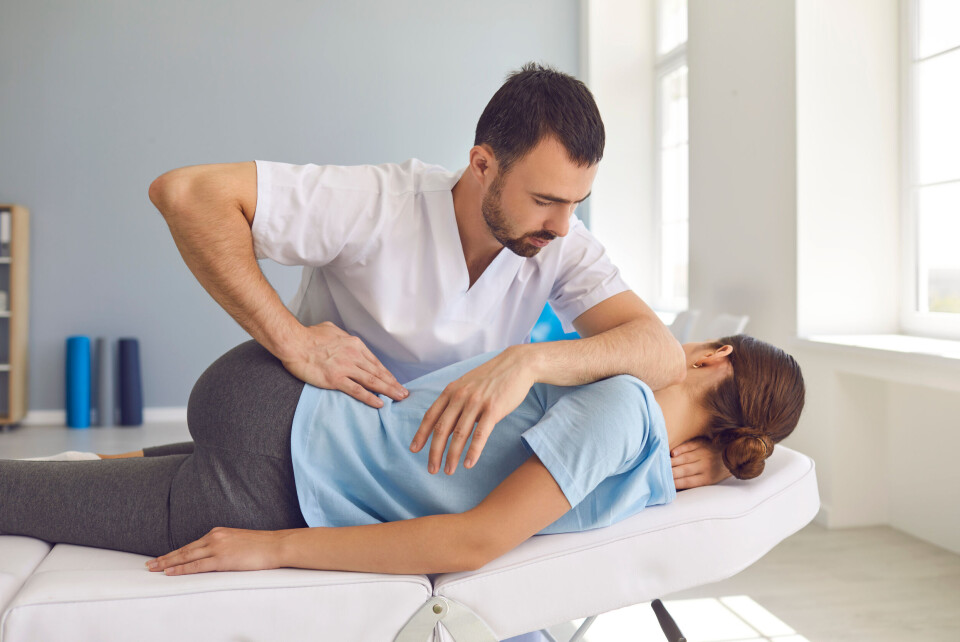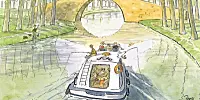-
Make sense of… boating in France
Summer is almost upon us and many people will be taking to the water once more. We recap what paperwork you might need to get afloat
-
France’s tug-of-war between its regional languages and official French
How dozens of languages evolved over centuries to become a source of pride despite efforts to stamp them out
-
Explainer: Make sense of six-month visas for France
Popular with second-home owners, any non-EU citizen looking to stay longer than three months in France can benefit from a temporary long-stay visa (VLS-T)
Make sense of… Physiotherapists (kiné) and osteopaths in France
Kinés (physios) and osteopaths are easily confused. In fact they offer different but complementary skills

You may have heard people referring to sessions with a kiné – this is short for masseur-kinésithérapeute (physiotherapist).
The word comes from the Greek for ‘therapy through movement’ and it involves manipulations of muscles and joints or learning physical exercises to help the body function and move better again.
Most kinés operate in their own practices or as employees of a private clinic, others in hospitals.
In France physiotherapy is considered a ‘paramedical’ profession and has been recognised for 70 years. Sessions are reimbursed by the state at 60%, with the rest typically being reimbursed by a top-up mutuelle insurance.
Most kinés charge standard tariffs, although some, especially in areas such as Paris or the Riviera, charge dépassements d’honoraires (fees over and above the standard rate, which many mutuelles will reimburse, partially or in full, depending on the policy).
Before seeing one, you should visit a doctor – preferably your GP, médecin traitant – for a prescription for physiotherapy.
Read also: Explainer: Paying to see a doctor or health specialist in France
Physiotherapy is often confused with osteopathy; another therapy involving hands-on manipulation, which is considered alternative medicine in France and is not reimbursed by the state (unless it is offered as an extra by a doctor but in which case there may be dépassements and the reimbursement will only be on the basis of a normal consultation).
Some mutuelles offer reimbursement for complementary medicine, but often only up to a set, limited level per year.
Kiné Bruno Bernard, from Montpellier, said his prices are quoted per half hour session, based on units called AMS or AMK, worth €2.15 each. For example, re-education of the back costs 1 AMS x 7.5 = €16.13.
Back problems are a large part of the job. “That’s everything from the lumbar region [the bottom of the spine] to the neck. Helping recovery from injury is also common – a sprained ankle, for example or re-education after operations on the knees or the hips, or after shoulder injuries.
“We can also provide re-education after neurological illnesses to recover mobility, help women tone up after giving birth or help babies with breathing difficulties.”
He said it takes about 10-15 sessions for a bad back and around 10 for a sprained ankle, however after a knee operation it can take 40-50. “It takes time for them to re-learn how to bend the knee and then recover their strength to return to normal.”
Therapeutic massage has ancient roots and modern physiotherapy derived from efforts to formalise methods developed through trial and error and ground them in science.
Ostoepathy in France
Osteopathy, on the other hand, derives from theories of its founder, a self-taught anatomy expert who, in 19th century America, developed an idea that health requires the harmonious flow of ‘vital fluid’, which could be unblocked by manipulations to better align the different parts of the body.
Despite these unconventional origins, osteopathy is regulated and practitioners must follow a lengthy period of training involving a high level of knowledge of the body.
The Académie Nationale de la Médecine studied osteopathy along with several other alternative therapies in a 2013 report, saying it was proven to be ‘moderately effective’ for a range of back and neck conditions and in some cases for headaches and dizziness. It warned there could be complications from manipulations (notably of the neck) of a serious nature but this was rare.
The academy said therapies like this had their place if they remained complementary and people consulted a doctor first.
Osteopaths in France follow a five-year course or a fast-track one if they are already doctors or physios.
Mr Bernard, whose clinic offers the technique as well as conventional physiotherapy, said it was often most effective where a person is in sudden pain and wants a fast solution, rather than for long-term re-eduction.
“Where you’re really in pain because you’ve put your back out - a vertebra has been put out of place by the wrong movement – the osteopath will try and find the cause and put things back. He or she will go directly to the anatomical structures and try to put the bone back in place.
“Afterwards the person might still need sessions with a physio for example because the muscles might be tense and need massage. Physios might also work with the person to avoid it happening again – working with exercises on the back.”
He added that typically osteopathy is a one-off, or a couple of sessions at most and costs around €60 for a session of on average 45 minutes.
“There are various styles,” he said. “Some will make your bones crack all over to put them back in place and others take a gentler approach to try to stretch the tissues and act on the energy systems of the body in a way that’s closer to Chinese medicine.
“These techniques have existed for some time and are comparable to what we call in France les rebouteux [traditional healers].”
Another comparable technique is chiropractic, which is much less common in France. Mr Bernard said that tends to be even more direct in its approach.
“They go directly to where it’s hurting and crack you to put you back in place; an osteopath may look also at the tissues and muscles and seek underlying causes – because the origin of the problem isn’t always in the place where you have the most pain.
“For example, pain in the middle of the back might originate from the neck. Sometimes unblocking one part has an effect on another part, that then needs work. An osteopath will try to restore equilibrium.”
Mr Bernard added: “Sometimes I’ll get stuck with a patient – I can’t re-educate them because they need to unblock something with a session with an osteopath. Then I can continue my work. It’s not one against the other.”
Read more
French health site Doctolib to ban unregulated wellbeing practitioners
Pharmacies in France can now administer 14 more vaccines
Why Nutri-score gives A to factory chips and E to farmers’ cheese
























